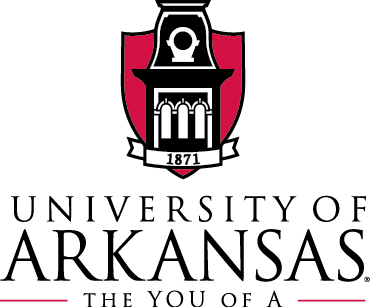Ozarks At Large
 Roby Brock with our content partner TalkBusiness Arkansas speaks with the President of AT&T Arkansas about the strain our surfing habits are putting on the mobile infrastructure.
Roby Brock with our content partner TalkBusiness Arkansas speaks with the President of AT&T Arkansas about the strain our surfing habits are putting on the mobile infrastructure.A new report released yesterday suggests that home sales were up in Arkansas throughout last year. One of Fayetteville's trails is nationally recognized. The U of A announces that a multi-million-dollar deficit in its Advancement Division will be eliminated this fiscal year. NWACC reports a decline in spring enrollment, while ATU-Ozark posts another record spring semester. And several area Main Street programs receive awards from Main Street Arkansas.
 On this edition of Ozarks, we discuss the future of the private option in the state. Also, Northwest Arkansas ranks nationally for its job growth rate.
On this edition of Ozarks, we discuss the future of the private option in the state. Also, Northwest Arkansas ranks nationally for its job growth rate. Minnesota-based Summit Brewing Company will introduce some of its craft beers to the state next week.
Minnesota-based Summit Brewing Company will introduce some of its craft beers to the state next week.Becca offers help for Valentine's Day outings with this list of regional visual arts and museum events.
 Arkansas Democrat Gazette columnist John Brummett talks to Talk Business Arkansas' Roby Brock about the private option's chances for survival.
Arkansas Democrat Gazette columnist John Brummett talks to Talk Business Arkansas' Roby Brock about the private option's chances for survival.Yesterday's release from the Federal Bureau of Labor Statistics shows broad-based job growth in northwest Arkansas, sales tax revenue went up for the big four cities of northwest Arkansas in November. NWACC decides to buy land from the Arkansas and Missouri Railroad. The education given by the U of A is again described as a good value by the Princeton Review. A teaching farm in Fayetteville gets a grant from Ozark Natural Foods. And Arkansas' newest state senator doubles down on not renewing the state's Private Option expansion of Medicaid.
 Ahead on this edition of Ozarks: we find out, kind of, why Dr. Lonnie Smith is a “doctor.” The legendary jazz master of the Hammond organ will play in Fayetteville this weekend and he talks to Robert Ginsburg about his music and his career. And a survey to help gauge the direction for the city of Rogers as growth continues.
Ahead on this edition of Ozarks: we find out, kind of, why Dr. Lonnie Smith is a “doctor.” The legendary jazz master of the Hammond organ will play in Fayetteville this weekend and he talks to Robert Ginsburg about his music and his career. And a survey to help gauge the direction for the city of Rogers as growth continues.
 Dr. Lonnie Smith has accomplished just about everything one could in a musical career, except play in Arkansas. That will be rectified this weekend, when he performs at Walton Arts Center.
Dr. Lonnie Smith has accomplished just about everything one could in a musical career, except play in Arkansas. That will be rectified this weekend, when he performs at Walton Arts Center.Latest Edition of Ozarks at Large
Wednesday, April 9, 2014
Ahead on this edition of Ozarks, we learn three things you should know about collecting coins. Plus, we get ready for Hamlet, which will close out this season for TheatreSquared.
For a late-August Tuesday Becca Bacon Martin says you can learn more about grist mills in the area.
Dr. Rosilee Walker Russell, Executive Director of the University of Arkansas Fort Smith Academy of the Arts, explains all that happens at the Academy.
To hear more about the UA Fort Smith Academy of the Arts,including how to determine which potential arts class might be right for somebody you know, click here.
Since March, the Carroll County Quorum Court has considered an ordinance to bring water to rural areas of the county. The measure finally passed August 20th, creating a Carroll County Water Facilities Board. But as Jacqueline Froelich reports, the need for a rural water system is not crystal clear.
A student at the University of Arkansas this summer proved a sustainable vegetable garden is possible along a busy street in the middle of Fayetteville.






